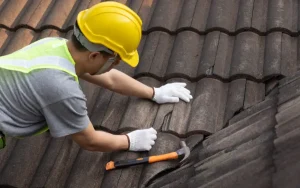Introduction
In today’s world, where environmental concerns are becoming increasingly prominent, sustainable home renovation has emerged as a vital trend in the construction industry. Homeowners are no longer just looking for aesthetic upgrades or increased property value; they are also focusing on reducing their carbon footprint and creating healthier living spaces. A sustainable renovation focuses on reducing waste, conserving energy, and utilizing eco-friendly materials, all while maintaining comfort and functionality. This article explores the strategies for achieving energy efficiency and eco-friendliness in home renovation, offering insights into the use of renewable resources, innovative technologies, and sustainable practices.
Understanding Sustainable Renovation
Sustainable renovation is about more than just making a home look new; it involves a commitment to environmental responsibility and resource efficiency. The principles of sustainable renovation can be summed up in three simple words: Reduce, Reuse, and Recycle. These principles guide the process of minimizing waste, reusing materials where possible, and recycling old components to reduce the demand for new resources.
A sustainable renovation considers the lifecycle of building materials, the energy consumption of the home, and the health impacts on its occupants. For example, using low-VOC (volatile organic compounds) paints reduces indoor air pollution, promoting better health. The goal is to achieve a balance between functionality, comfort, and environmental impact. Sustainable practices in renovation not only reduce carbon emissions but can also result in significant cost savings in the long term, through reduced energy consumption and lower maintenance costs.
Energy Efficiency in Home Renovation
Improving energy efficiency is one of the most effective ways to make a home more sustainable. Several renovation strategies can help reduce energy consumption, lower utility bills, and increase overall comfort.
Insulation and Windows
One of the key areas to address is insulation. Proper insulation in walls, roofs, and floors reduces the amount of heat lost in the winter and keeps the home cooler in the summer, reducing the need for heating and air conditioning. Upgrading to energy-efficient windows and doors also plays a crucial role, as they prevent drafts and reduce the loss of conditioned air.
Smart Home Technologies and Appliances
Another important aspect of energy efficiency is the adoption of smart home technologies. Smart thermostats, for instance, learn household patterns and adjust heating and cooling based on occupancy, reducing energy waste. Energy-efficient appliances, such as refrigerators, washing machines, and dishwashers, consume less electricity and water, contributing to lower utility bills.
Solar Power
Solar power is another excellent option for sustainable home renovation. By installing solar panels, homeowners can generate their own electricity, further reducing reliance on non-renewable energy sources.
Eco-Friendly Construction Materials
Choosing the right materials is critical in any sustainable home renovation project. Eco-friendly materials not only have a lower environmental impact during production but also contribute to healthier indoor air quality and increased durability.
Bamboo and Reclaimed Wood
Bamboo, for example, is a popular choice for flooring due to its rapid growth rate and minimal environmental impact. Reclaimed wood, sourced from old buildings or structures, adds a unique aesthetic to a home while reducing the demand for new lumber.
Recycled Metal and Natural Insulation
Other sustainable materials include recycled metal, which can be used for roofing or structural elements, and natural insulation materials like sheep’s wool or cellulose, which offer excellent thermal properties and are biodegradable. Low-VOC paints and finishes are also essential for reducing indoor air pollution.
Considerations for Material Selection
When selecting materials, it’s crucial to consider factors like location, climate, and the specific needs of the home. Materials that perform well in one region may not be as effective in another, so working with a knowledgeable contractor or architect is essential.
Practical Tips for a Sustainable Renovation
- Plan Ahead: Start by setting clear goals for your renovation. Consider energy efficiency, material selection, and waste reduction from the outset.
- Choose Green Contractors: Hire contractors who have experience with sustainable building practices or certifications like LEED (Leadership in Energy and Environmental Design).
- Invest in Energy Efficiency: Prioritize upgrades that enhance your home’s energy efficiency, such as insulation, high-performance windows, and energy-efficient appliances.
- Use Recycled or Reclaimed Materials: Incorporate recycled or reclaimed materials into your renovation to reduce environmental impact and add unique character to your home.
- Minimize Waste: Work with your contractor to develop a waste management plan that includes recycling and reusing materials wherever possible.
Conclusion
Sustainable home renovation is not just a trend; it is a responsible choice for the future. By adopting energy-efficient practices, using eco-friendly materials, and planning thoughtfully, homeowners can create beautiful, comfortable living spaces that reduce their environmental impact. Whether you’re embarking on a small DIY project or a full-scale renovation, embracing sustainability can lead to long-term cost savings, improved comfort, and a healthier home environment. Start your journey towards a greener home today and contribute to a more sustainable future for everyone.





